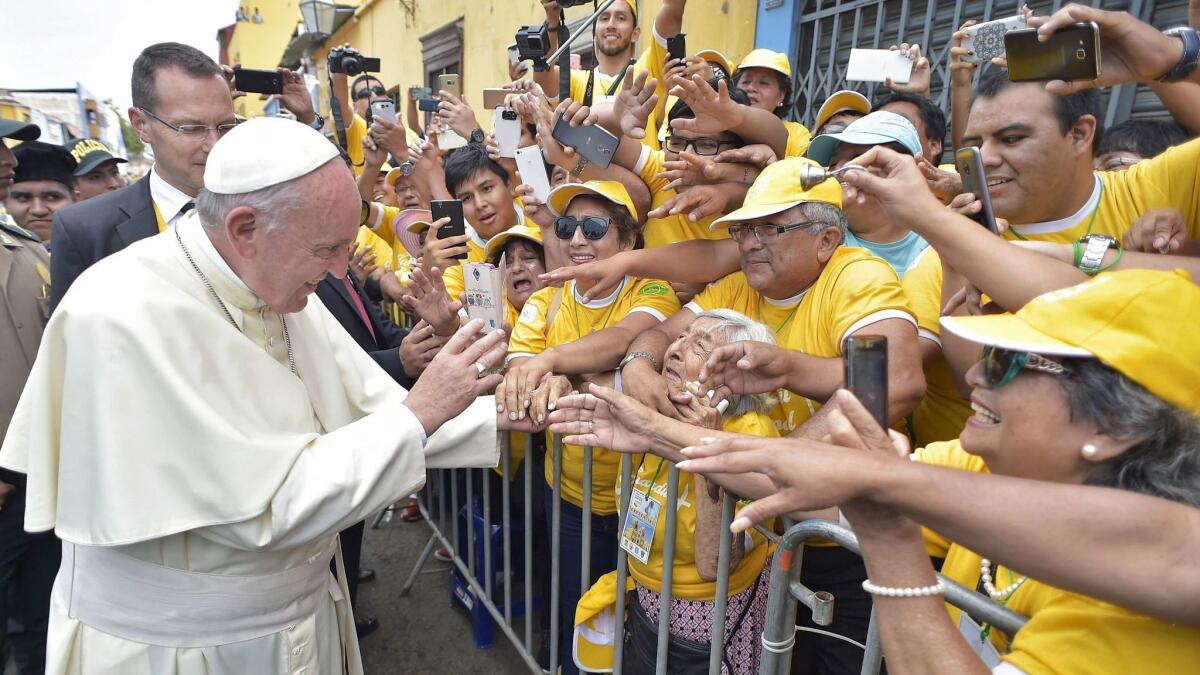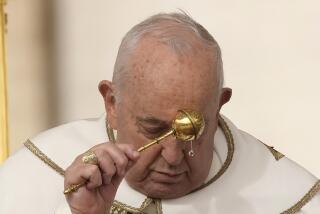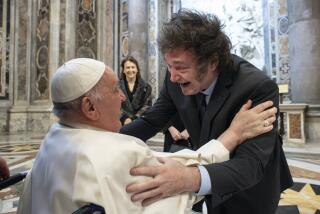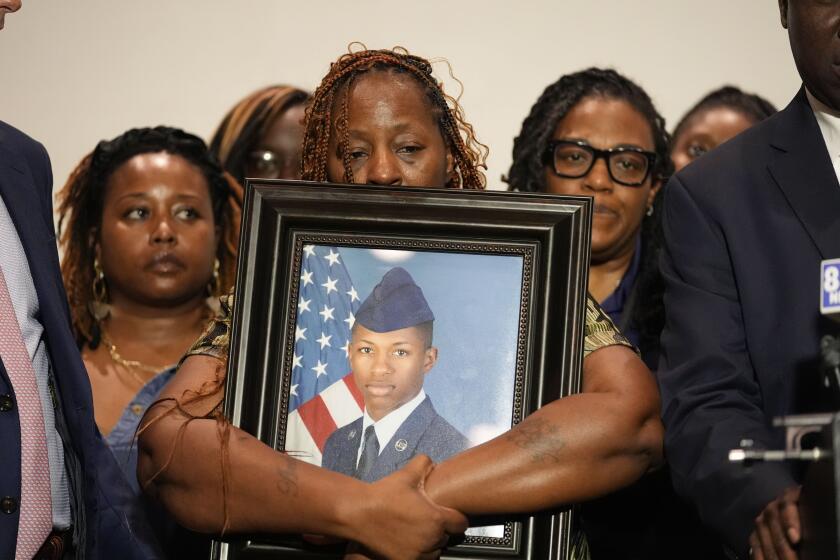Cardinal defends pope but says his comments were ‘of great pain for survivors of sexual abuse by clergy’

As ecstatic crowds in Peru greeted Pope Francis on the penultimate day of his weeklong visit to South America, the church hierarchy sought to deal with continued fallout from his controversial remarks stemming from an infamous clerical sex-abuse case in Chile.
The pope said in Chile that victims in that abuse case were slandering a bishop allegedly involved in a cover-up of what happened, triggering outrage in Chile and beyond.
Cardinal Sean O’Malley — the archbishop of Boston and Francis’ top aide on the issue of clerical abuse — on Saturday sought to soothe the indignation on an issue that has done massive damage to the church’s credibility in recent years.
“It is understandable that Pope Francis’ statements … were a source of great pain for survivors of sexual abuse by clergy or any other perpetrator,” Cardinal O’Malley said in a statement that amounted to a church effort at damage control. “Words that convey the message, ‘If you cannot prove your claims then you will not be believed,’ abandon those who have suffered reprehensible criminal violations of their human dignity and relegate survivors to discredited exile.”
O’Malley said he could not address “why the Holy Father chose the particular words” he used to the Chilean media.
“What I do know, however, is that Pope Francis fully recognizes the egregious failures of the Church and its clergy who abused children and the devastating impact those crimes have had on survivors and their loved ones,” O’Malley added.
To many critics, the pope’s comments recalled decades of church cover-ups and a strategy of protecting pedophile priests while attempting to discredit their accusers. Some questioned whether the 81-year-old Jesuit understood the gravity of the clerical abuse scandal, despite his seemingly heartfelt apologies for past abuse and his declared “no tolerance” policy for such misconduct.
While in Chile, the pope addressed the case of Bishop Juan Barros, whom Francis appointed to head the diocese of Osorno in southern Chile. Victims of Chile’s most notorious pedophile priest have accused Barros of engaging in a cover-up.
“There is not one shred of proof against him,” Francis told the Chilean media, referring to Barros. “The day they bring me proof against Bishop Barros, I’ll speak.”
The pontiff said those accusing the bishop were engaging in a “calumny.”
Barros was a protégé of Father Fernando Karadima, a Santiago cleric who was found to have abused children and adults for years. The Vatican ultimately sentenced Karadima to a life of reflection and penance. He was never charged criminally.
But abuse victims say the church ignored their allegations against Karadima for years and that Barros and others helped cover up his crimes.
Barros has called the allegations “lies,” and appeared last week at an open-air Mass celebrated by Francis in central Santiago.
The issue of clerical sexual abuse has not arisen during the pope’s visit to Peru, where he arrived Thursday evening, after spending most of the first four days of his South American trip in Chile. Huge and enthusiastic crowds have welcomed the pontiff in both countries.
The pope’s trip here to northern Peru echoed his ongoing concerns about the plight of the poor, the status of the environment and the effects of climate change. In a 2015 encyclical letter, Francis backed the conclusion of scientists who argue that human activity, especially the burning of fossil fuels, is a major contributor to climate change.
At a Mass attended by some 200,000 people in the seaside town of Huanchaco, Francis showed solidarity with victims of devastating flooding triggered by a climate phenomenon in the region known as El Niño Costero.
“You know the power of nature, you have experienced its force,” Francis said. “You had to face the brunt of the Niño Costero, whose painful consequences are still present in so many families.”
The flooding in early 2017 killed more than 150 in northern Peru and left tens of thousands homeless, most of them poor. Almost a year later, many victims remain without proper housing and complain bitterly about a lack of government aid.
As in other stops, many people lined up beginning in predawn hours to get a glimpse of the pope, whose status as a defender of the downtrodden — and as the first pontiff from the Americas — has contributed to considerable popularity throughout Latin America. Many spent the night in tents and on sleeping bags.
“We arrived last night and slept here,” said Patricia Moreno, 48, who traveled more than 250 miles to attend the Mass in Huanchaco, along with her husband and two children. “It has been a great sacrifice to come, but it’s worth the trouble. It is a marvelous feeling to see him, to know that he is praying for us, that he loves us.”
She and her family were among the many who suffered damage to their homes in last year’s flooding.
“The government hasn’t done anything for us,” Moreno said, echoing the sentiments of other flood victims. “There is no reconstruction. ... Hopefully the words of the pope will make [the government] react because we cannot continue living like this.”
During his trip here, the pope also spoke about the victims of violence, especially women, in a zone where insecurity linked to drug trafficking and other criminal activity has been taking an increasing toll in recent years. The pope said “organized violence,” such as inadequate housing and unemployment, were among the many “storms” the region has had to endure.
Times staff writer McDonnell reported from Lima, Peru, and special correspondent Leon from Trujillo, Peru.
UPDATES:
7:50 p.m.: This article was updated with staff reporting and additional comments from Pope Francis, Sean O’Malley and Patricia Moreno.
This article was originally published at 3:20 p.m.
More to Read
Start your day right
Sign up for Essential California for news, features and recommendations from the L.A. Times and beyond in your inbox six days a week.
You may occasionally receive promotional content from the Los Angeles Times.






